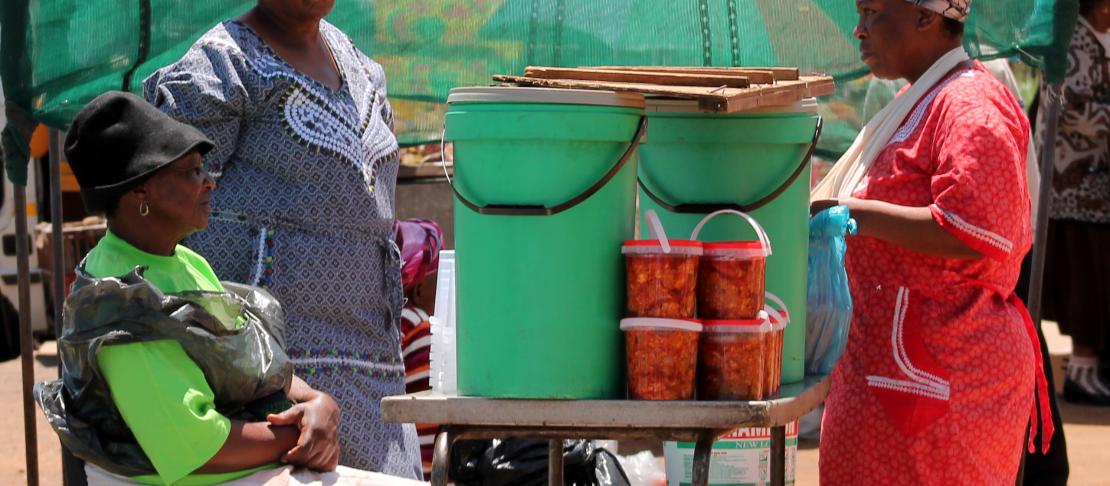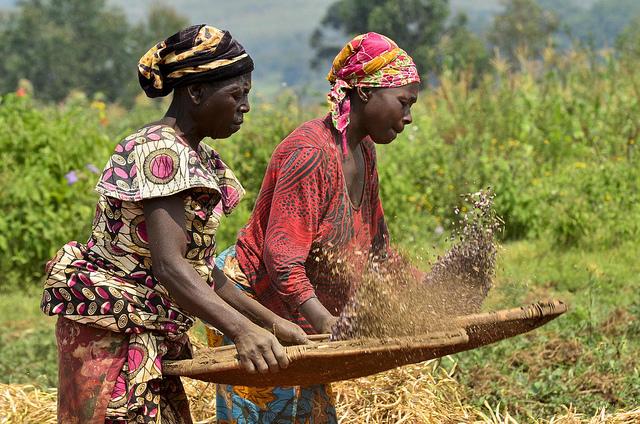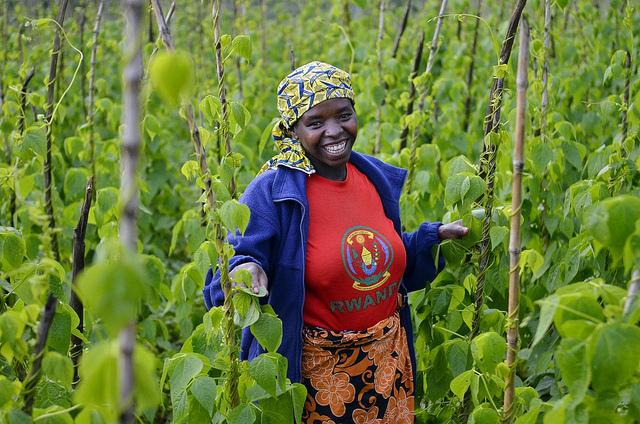Playing out transformative adaptation in East Africa

Bringing gender into perspective was one of the main goals of the workshops conducted in East Africa as part of a CCAFS project.
The participatory workshops were an opportunity to include gender-inclusive tools alongside other participatory methods. It was a process of co-learning between farmers and CIAT-CCAFS researchers," CIAT/CCAFS Gender researcher Jennifer Twyman.
 IT WAS A PROCESS OF CO-LEARNING with CIAT/CCAFS RESEARCHERS. Photocredit: CIAT
IT WAS A PROCESS OF CO-LEARNING with CIAT/CCAFS RESEARCHERS. Photocredit: CIAT
The introduction and the general presentation of results were done in a large group but smaller groups were formed to work on the historical calendars and to discuss crop suitability and baseline data as well as the gender questions.
Most of the small groups were divided by gender, with two men’s groups and two women’s groups. However, in Nyando, Kenya, since there was a pronounced difference in the agro-ecological zones, for the historical calendar we divided the group in two based on where the participants were from: one group from the higher elevation zone that gets more rain and the other from the lower region that gets less rain.
The workshops brought interesting results. In all four sites farmers are aware of a changing climate and the (negative) consequences this brings. Furthermore, there are differences in perspectives between men and women on the division of tasks and on the household decision-making process.

In Borana, concerning the vision of the future, the main comment made concerning agriculture was the need for improved varieties of crops that are especially resistant to pests, droughts and diseases.
Furthermore, more chemicals are needed to control these pest and diseases. Also, there seems to be a need for improved livestock breeds and a better working system for water conservation. On the social side, the participants gave notice to the fact that they need more schools and improved drinking water facilities. Due to a lack of money, most of these goals cannot be reached, and therefore more access is needed.
In Nyando, for the future, many farmers stated that they would like to receive more information and capacity building efforts on climate change adaptation and mitigation strategies.
In Usambara, though, there are differences in perspectives between men and women on the division of tasks and on the household decision-making process. Concerning the vision of the future, many farmers let us know that they would like to see more extended information on climate change adaptation and mitigation strategies.
In Hoima, farmers explained that they have noticed lots of negative (climate) changes already occurring due to increased population and pressure on land. Since there are many changes happening, there needs to be more extension services to get more information especially about new varieties that could help farmers adapt to climate change. Finally, participants stated that there is a need for more support on conservation. Jennifer Twyman concluded:
The project has done a nice job of integrating gender as an integral part of agricultural research. We are combining bio-physical, socio-economic, and gender research tools and analysis to understand best adaptation options for farmers."
Click here to access the reports online.
The reports document the information collected during the participatory workshop hosted by the CGIAR Research Program on Climate Change, Agriculture and Food Security (CCAFS) in partnership with Managing Risk for Improved Livelihoods (MARIL) and Yabello Pastoral and Dryland Research Center, the regional office of Oromia Agricultural Research Institute (OARI), in the CCAFS site of Borana, Ethiopia; the Hoima district local government, Hoima District Farmers’ Association (HODFA) and Bulindi Zonal Agricultural Research and Development Institute (Bulindi-ZARDI) in the CCAFS site of Hoima, Uganda; the Selian Agricultural Research Institute (SARI) and Lushoto District Office in the CCAFS site of Usambara Tanzania; and the VI Agroforestry and World Neighbours in the CCAFS site of Nyando, Kenya.
Manon Koningstein is a Research Associate and Communications Specialist at the International Centre for Tropical Agriculture (CIAT). She is based in Cali, Colombia.



